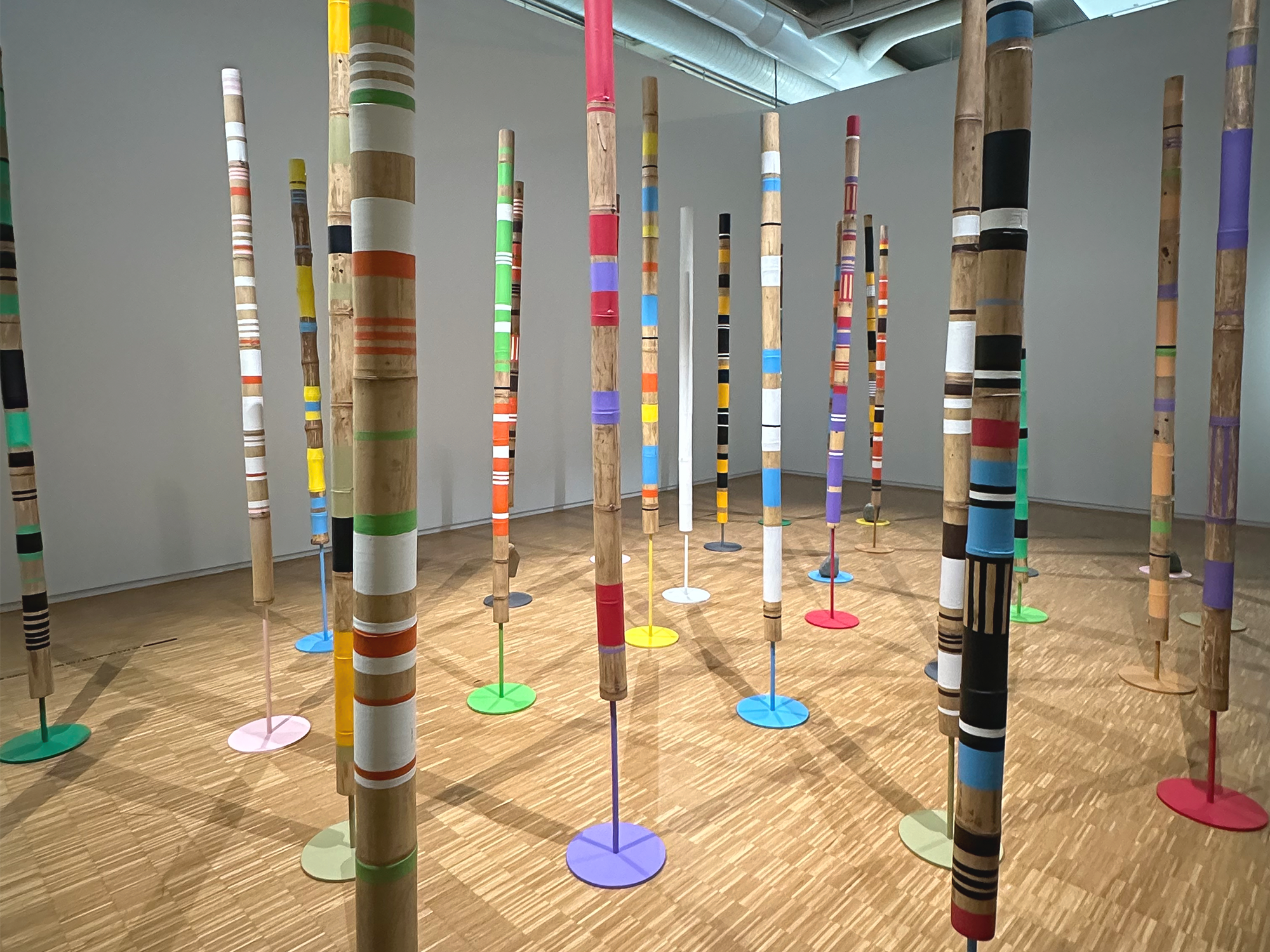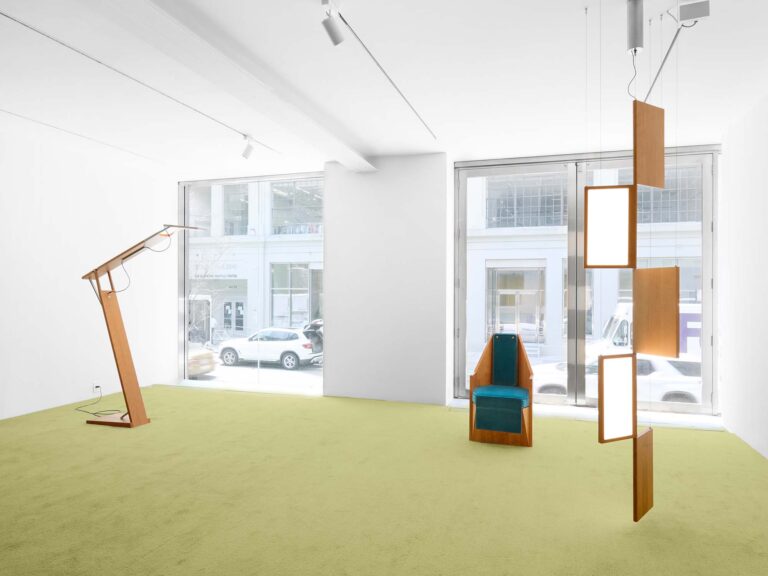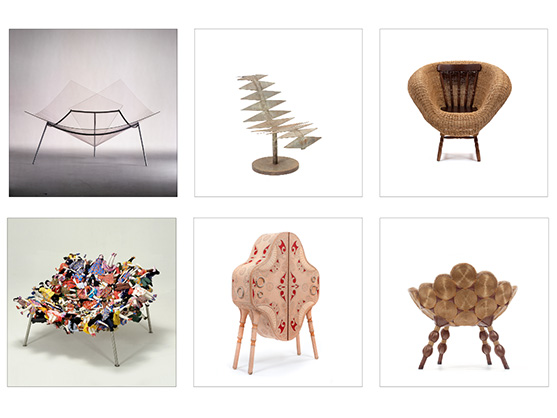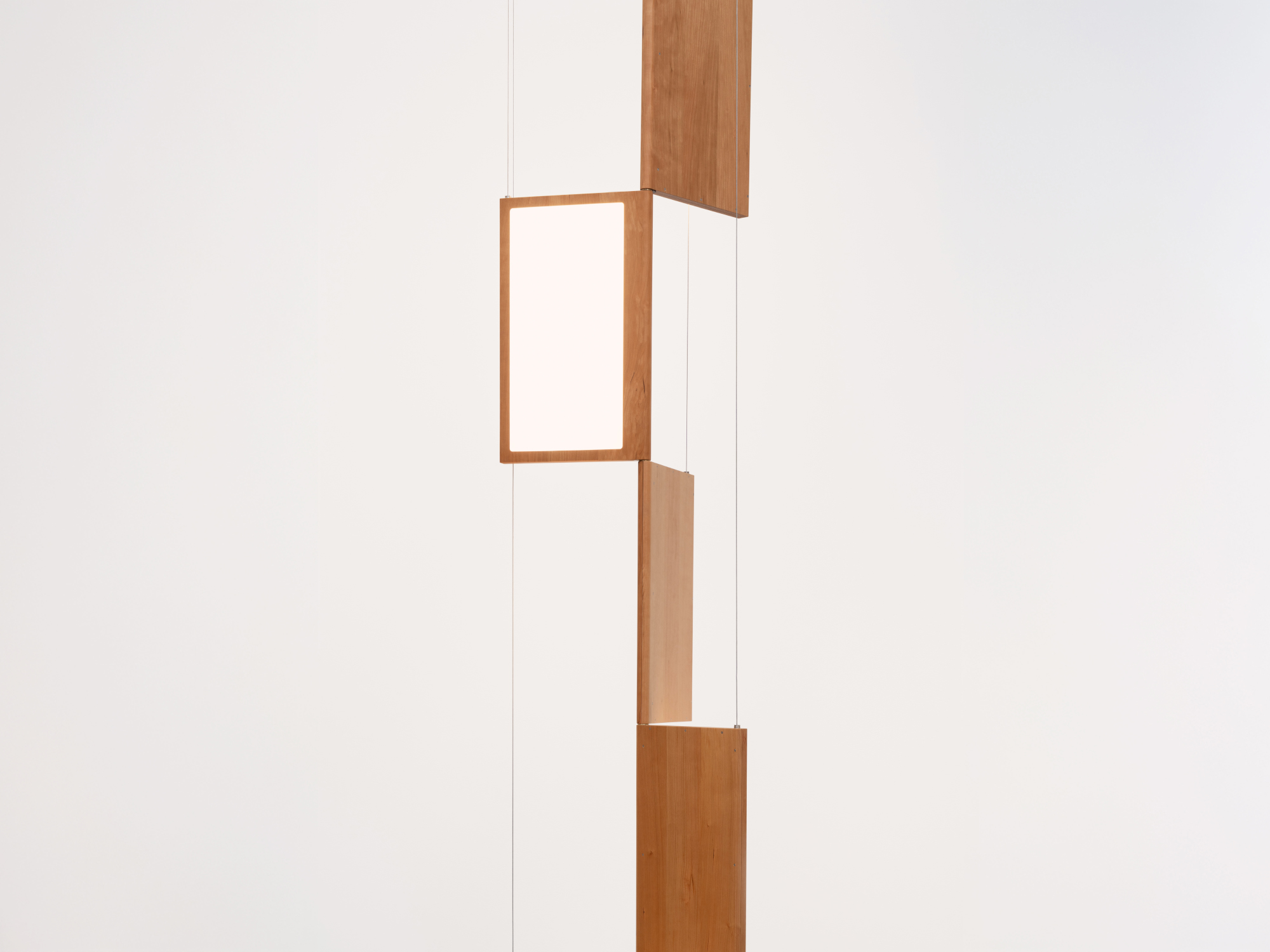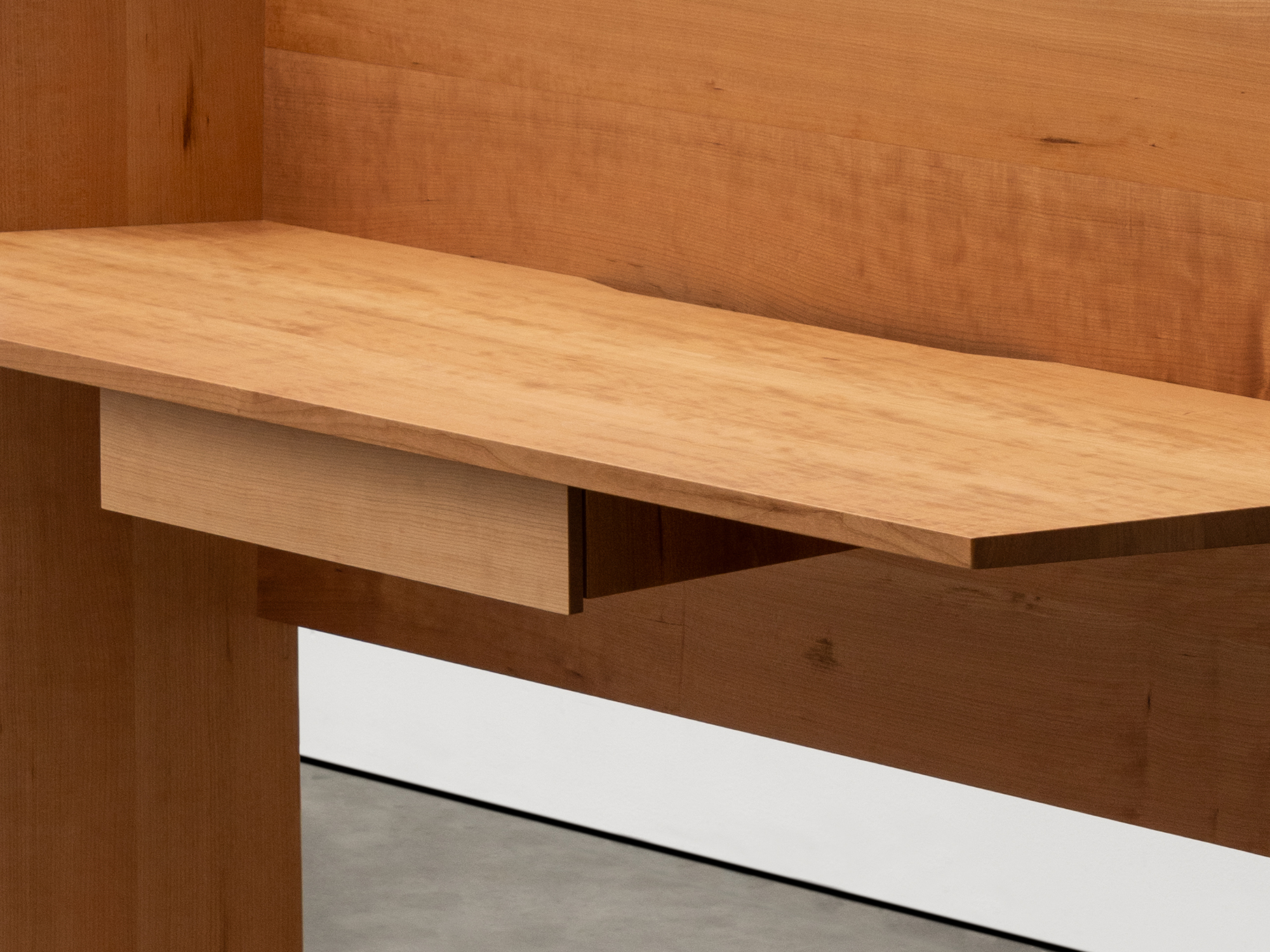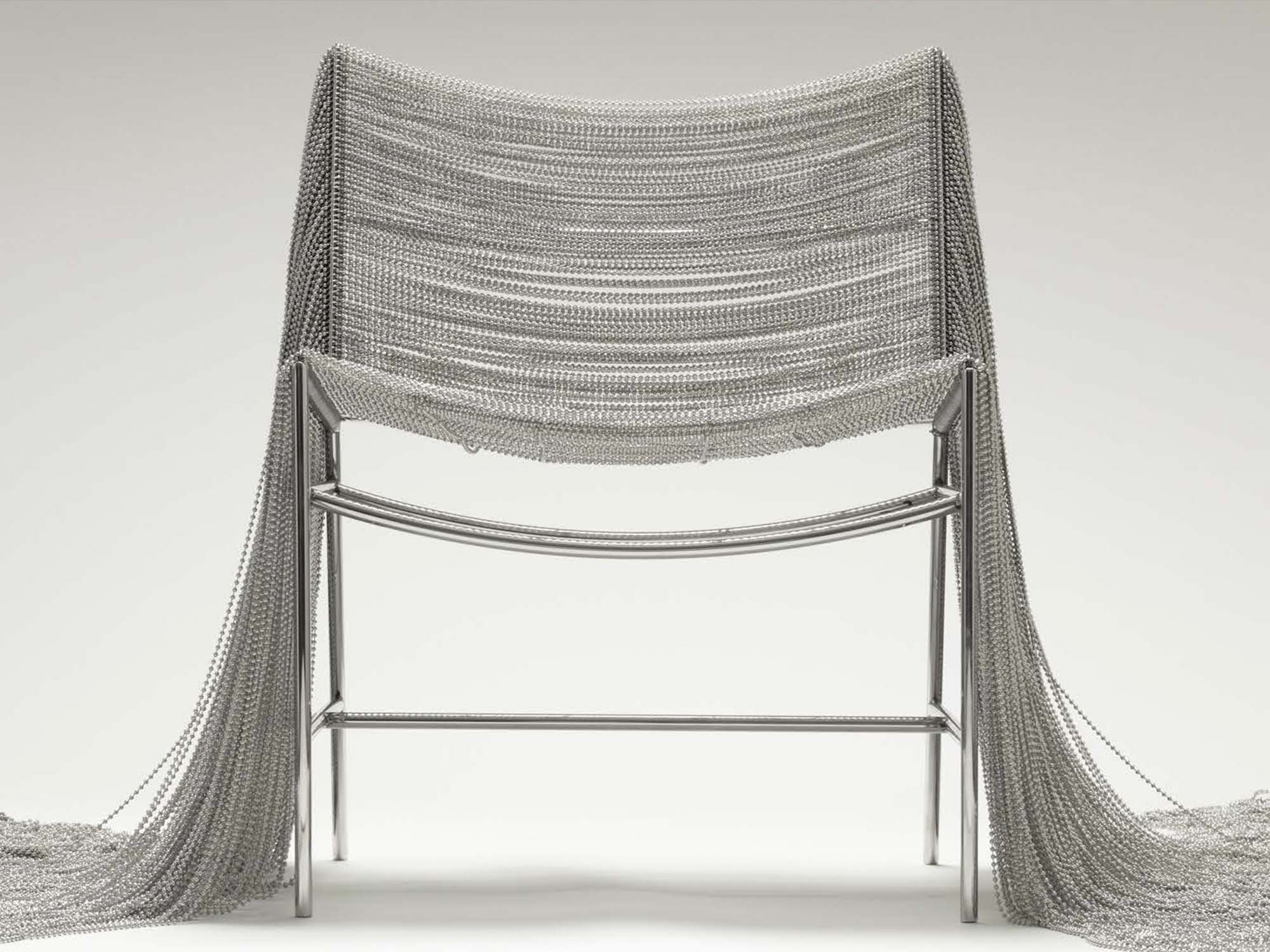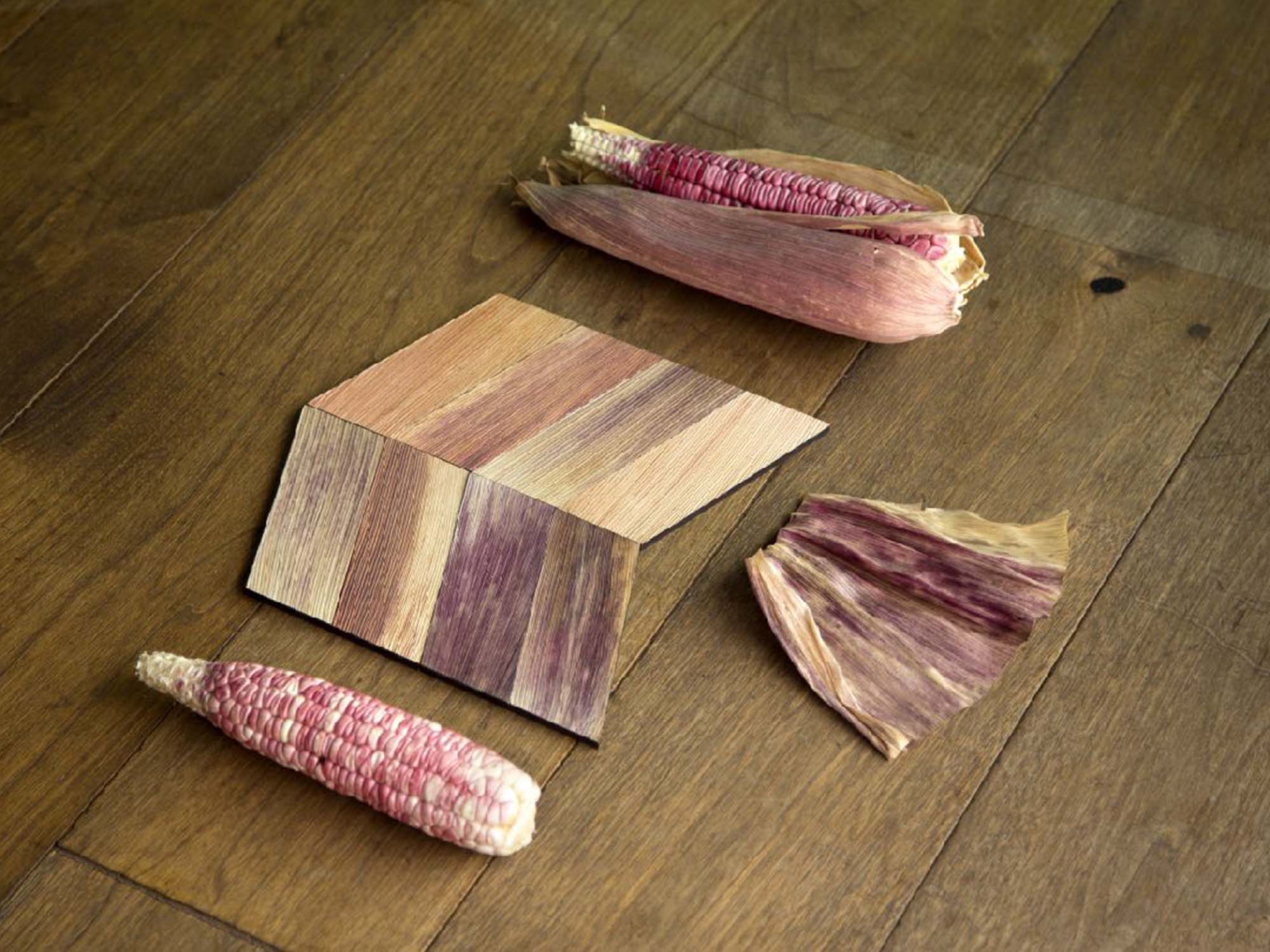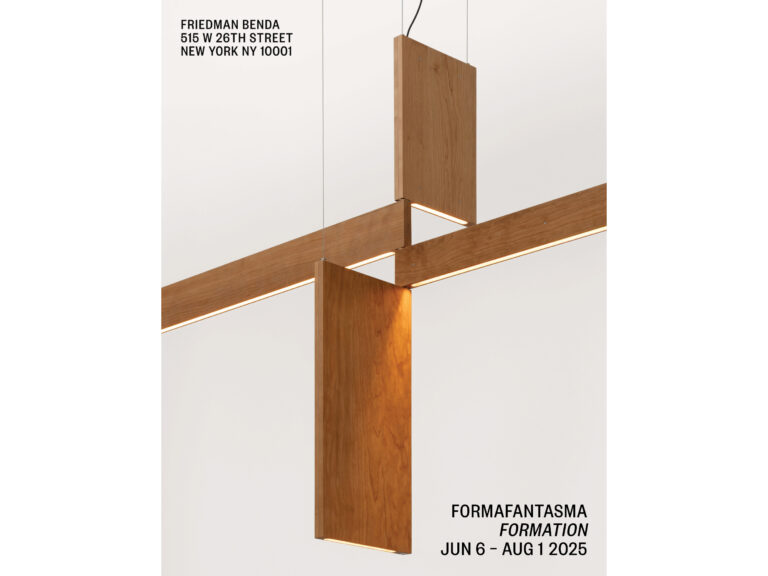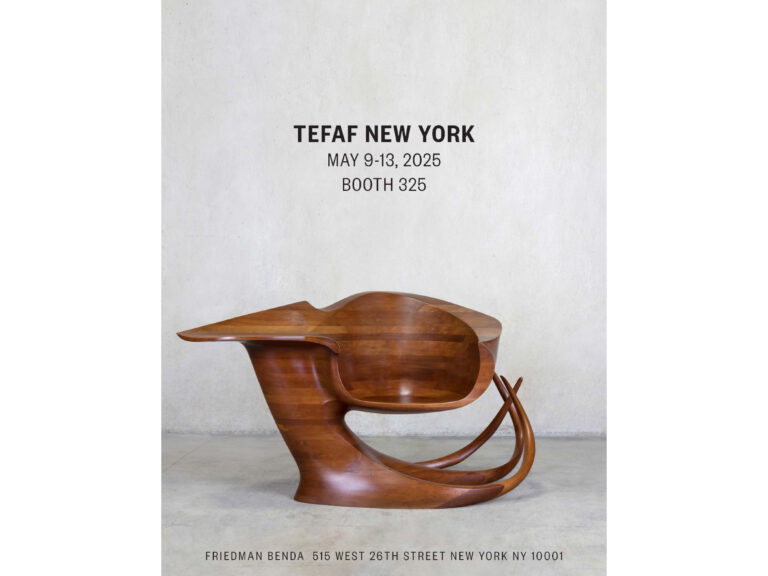Andrea Branzi (1938 –2023) is a major figure in the history and theory of design and architecture. A co-founder of the radical Archizoom group in 1966, he also participated in the Alchimia and Memphis groups. His considerable output questions the post-industrial society of the 20th and 21st centuries. Opposed to the “rationalist myth” of the project, Branzi questioned how humanity relates to its environment. The series entitled Animali domestici (1985), in which branches engage in dialogue with industrial materials, illustrates this dialectic between the natural and the artificial that runs through all his work.
Bamboo Interior Wood questions the meaning of our belonging to the “realm of the living.” The painted bamboo rods are endowed with a mysterious and poetic evocative power that references the sacred nature of action. With no precise geometry, this installation is presented as a “forest of the soul” through which we make our way, or as a musical score that enables us to hear sounds that are both dissonant and harmonious. Each bamboo rod has its own sequence of colors that references a specific aesthetic narrative anchored in different cultures. Bamboo Interior Wood introduces a reflection on time in its archaic, geological and sacred dimension, illustrating a “magical thinking” of creation.
Andrea Branzi (1938 – 2023) est une figure majeure de l’histoire et de la théorie du design et de l’architecture. Cofondateur en 1966 du groupe radical Archizoom, il participe également aux groupes Alchimia et Memphis. Son œuvre considérable interroge la société postindustrielle des 20e et 21e siècles. Opposé au « mythe rationaliste » du projet, Branzi interroge le rapport que l’homme entretient avec son environnement. La série des Animali domestici (1985), ou des branchages dialoguent avec des matériaux industriels, illustre cette dialectique entre naturel et artificiel qui traverse toute son œuvre.
Bamboo Interior Wood questionne le sens de notre appartenance au « règne des vivants ». Les bamous peints sont dotés d’un pouvoir d’évocation, mystérieux et poétique, qui renvoie à la sacralité du geste. Sans géométrie précise, l’installation se présente comme une « forêt de l’âme » à travers laquelle on chemine, ou comme une partition musicale aux sons à la fois dissonants et harmonieux. Chaque bambou possède en effet sa propre séquence de couleurs qui renvoie à un récit esthétique propre, ancré dans des cultures différentes. Bamboo Interior Wood ouvre une réflexion sur le temps dans sa dimension archaïque, géologique, sacrée, déployant une « pensée magique » de la création.
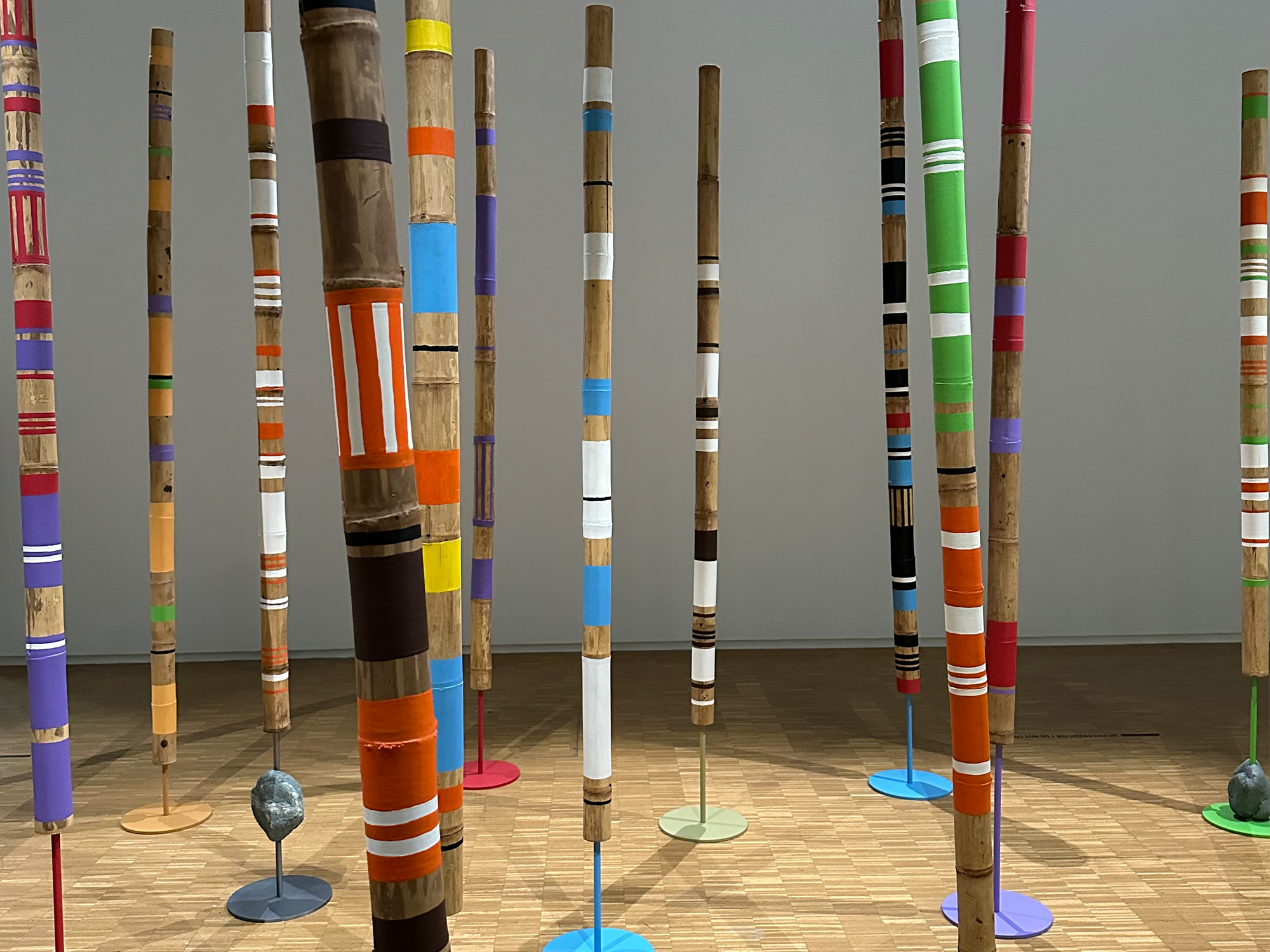
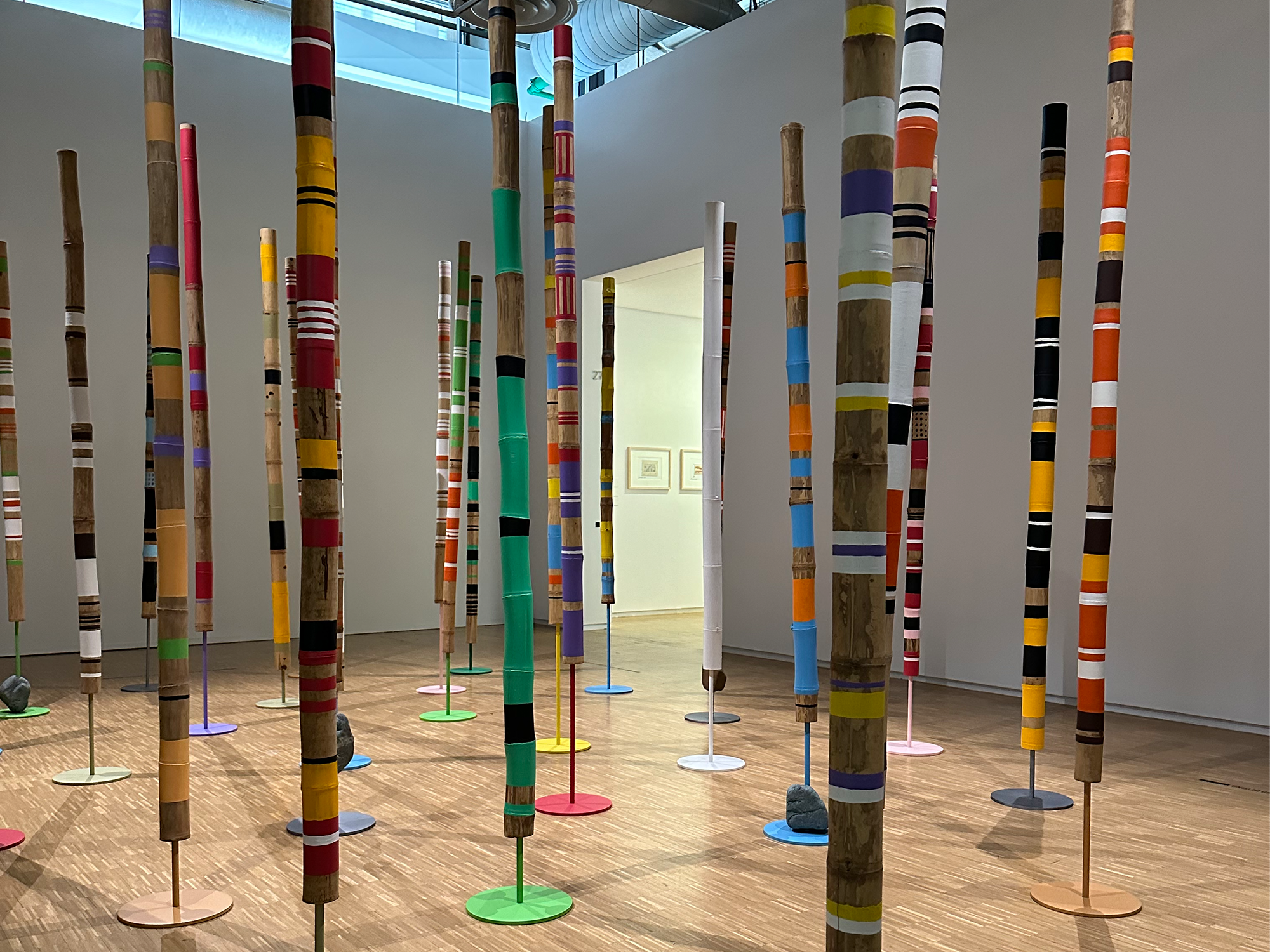
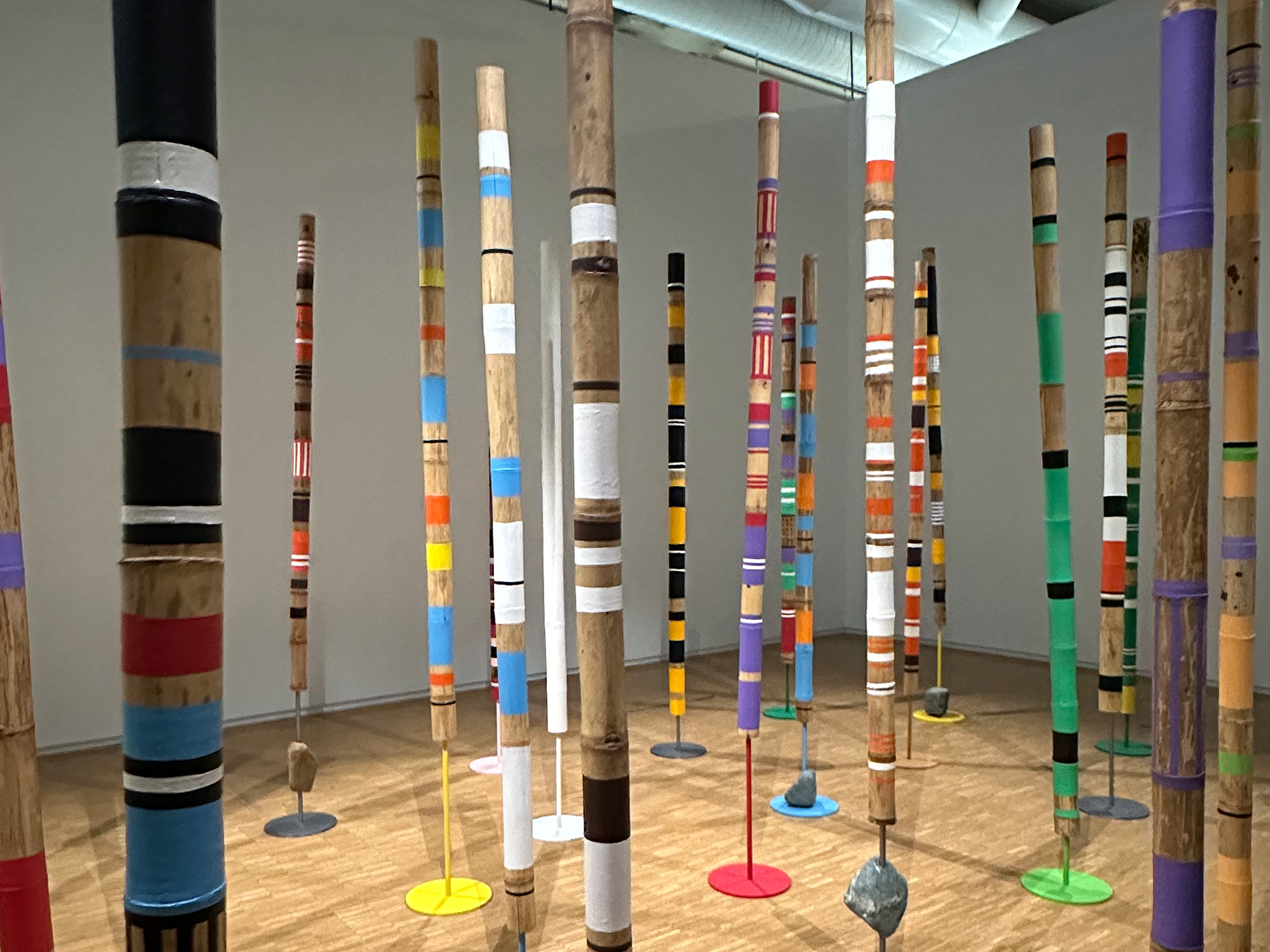
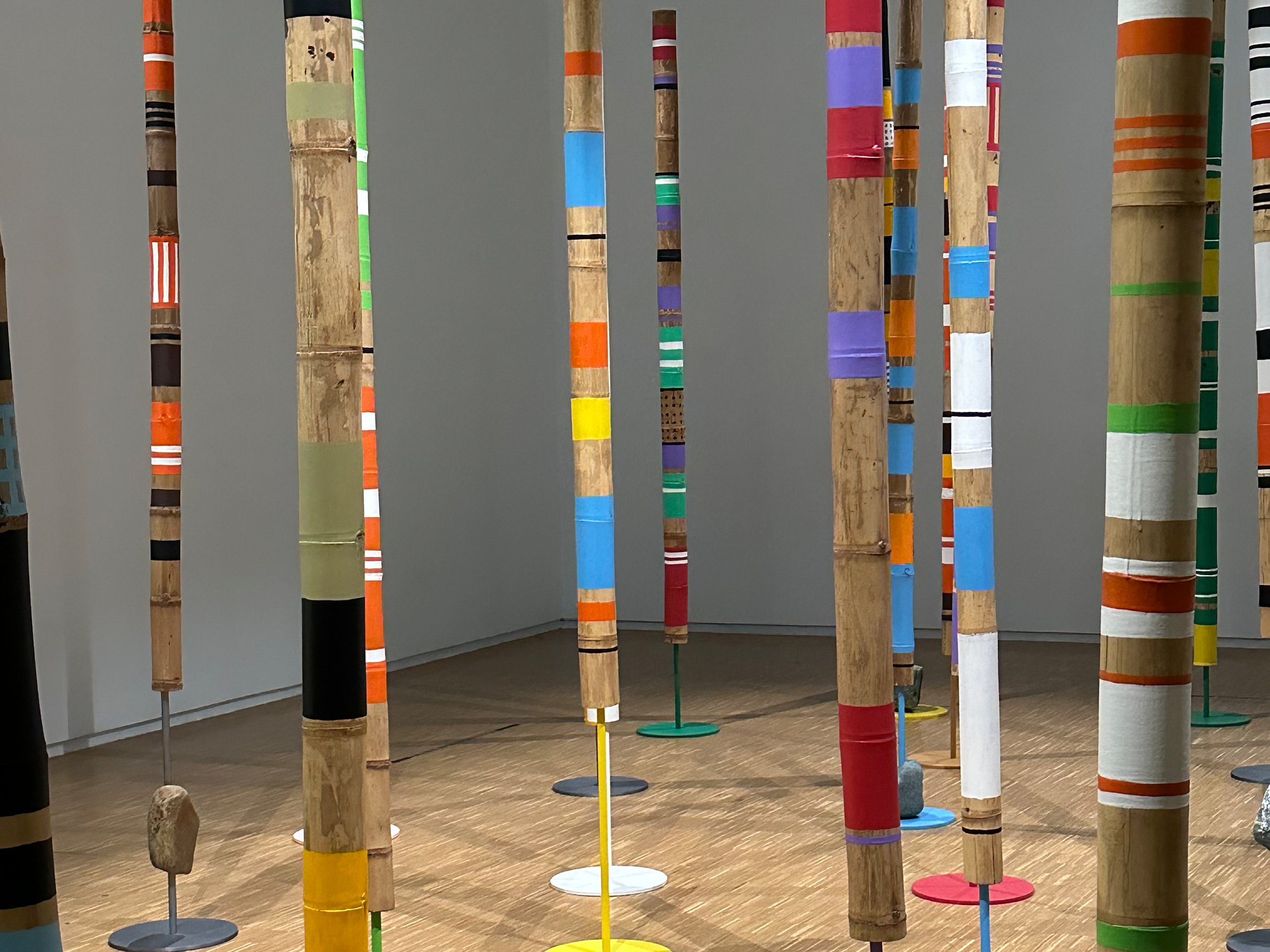
ABOUT ANDREA BRANZI
Seminal Italian architect, designer and educator Andrea Branzi held a lifelong fascination with how humans interact with objects, and sought to reconcile design and architecture with the evolving challenges of contemporary society. As a leading theorist, Branzi contributed an analytical and academic approach to the discipline.
Born in Florence in 1938, Branzi studied at the Florence School of Architecture, receiving his degree in 1966. From 1964 to 1974, he was a founding member of the experimental group Archizoom, which envisioned the groundbreaking No-Stop-City among other projects. Branzi was a key member of Studio Alchimia, founded in 1976, and went on to associate with the Memphis Group in the early 1980s.
Branzi’s works are held in the permanent collections of the Centre Georges Pompidou, Paris, France; Centro Studi e Archivio della Comunicazione dell’Università di Parma, Italy; Cooper Hewitt, Smithsonian Design Museum, USA; Fondation Cartier pour l’art contemporain, Paris, France; Le Fonds Régional d’art contemporain (FRAC), Orleans, France; Design Museum Gent, Belgium; Metropolitan Museum of Art, USA; Museum Boijmans Van Beuningen, Rotterdam, The Netherlands; Musée des Arts décoratifs, Paris, France; Musée des Beaux-Arts, Montreal, Canada; Museo del Design Italiano, Triennale di Milano, Italy; Museum of Fine Arts, Houston, USA; Museum of Modern Art, USA; Stedelijk Museum, Amsterdam, The Netherlands; Victoria & Albert Museum, London, UK; Vitra Design Museum, Weil-am-Rhein, Germany amongst others.
Andrea Branzi passed away in October 2023.
